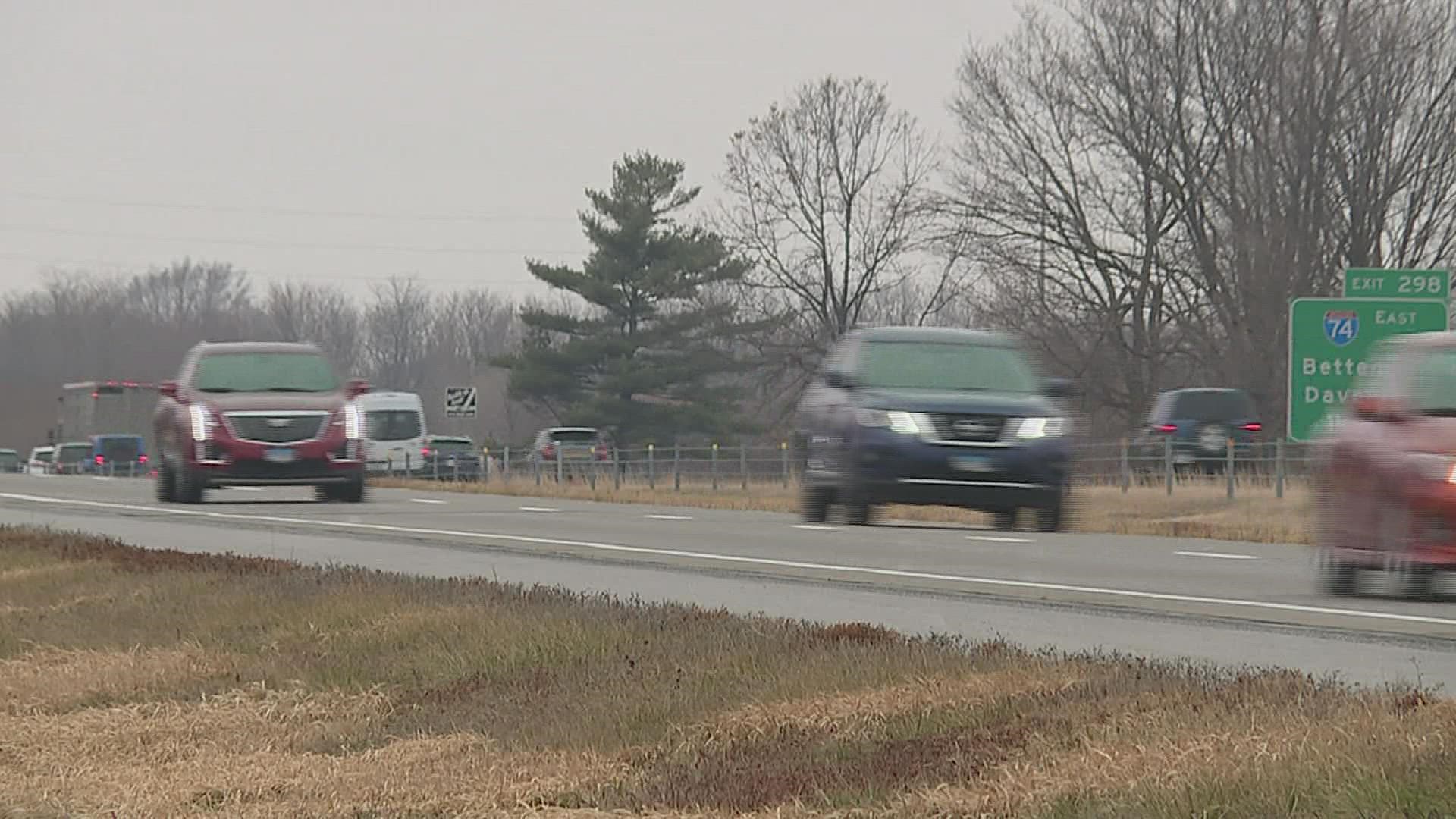BETTENDORF, Iowa — More than 100 million people were expected to hit the road this holiday season, according to AAA.
Many people were traveling back home on Sunday, Dec. 26, stopping at rest areas for food and gas.
"Drive was pretty much nice, like there was no much traffic," said Javeed Sheik, who was driving back to Des Moines after spending the weekend in Chicago. "I was expecting a lot of traffic in Chicago, but I think because of the Christmas season, everyone were having their dinners early, so it was quiet."
Other travelers were glad the weather was nice and there were no snow packed roads.
Kimberly Schmitz made the drive from Mineral Point, Wisconsin to visit her daughter and grandson in St. Louis. Traffic was light for her during her drive on Friday, Dec. 23, but the roads were a little more crowded on Sunday.
"Coming back now, since it's Sunday and everybody probably has to go to work, yeah it's been a little bit more hectic," she said.
She added that it was nice to spend the holiday with family in person this year, after not having family gatherings last year.
"We're all vaccinated," Schmitz said. "It was nice. It was long awaited."
Rock Island resident Melinda Neal stayed in town for Christmas and got together with family and friends, agreeing that it was long awaited. She said last year's holiday season was "very silent."
"We had the most wonderful meals together. Exchanged wonderful gifts, laughs and had a good time," Neal said. "It felt like we were all just kids again, you know, just like children. It was overwhelming, but so well needed."
With the recent surge of COVID-19 cases and the new omicron variant, Neal said there was some nervousness about gathering, but she and her family took precautions. They've all received their booster shots and she said she wears her mask when she goes to the store.
Another 6 million people were expected to travel by plane this past weekend, according to AAA. It said the best times to travel through New Year's weekend will be in the morning, with the least congestion predicted for Jan. 1.

